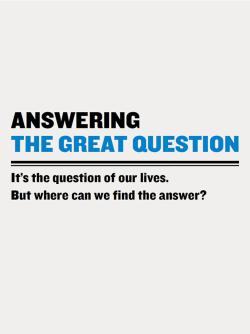A Meditation on Bread and Empty Shelves
Only one kind of bread never runs out.
The words “Winter Storm Watch”—or any kind of snow or ice in the forecast—seem to trigger an urgent need for bread. I’m sure you’ve seen it. Within minutes of a wintry weather forecast, supermarket and convenience store shelves are emptied. Jokes are made about it and fun is poked at those who react this way to routine news for the season. It shows the insecurity that people feel as a threat approaches. If we are going to be housebound due to inclement weather, having enough food on hand is essential, and bread is almost universally considered a necessity.
In some cultures, access to bread is serious business. Since the French Revolution in 1799, French bakeries have been required to remain continually open, closing only on national holidays. Even then, they close on mandated rotation, to ensure that there is always a supply of bread for the people. Such is the importance of bread in the hearts and minds of many. Perhaps because bread is on people’s minds even more often than they may realize, God uses it in the Bible to teach mankind lessons that they might not learn any other way.
Lessons from Bread
As the Israelites were liberated from centuries of slavery in Egypt, they found themselves in a barren wilderness. As they complained about the lack of food, God provided “bread from heaven” in the form of manna (literally, “what is it”), which they had to gather daily. God used this “bread” to teach them that the seventh day was holy time and that the manna should not be gathered on that day (Exodus 16:1–4, 22–30).
The Book of Proverbs also uses the analogy of bread to describe human behavior. “Do not enter the path of the wicked, and do not walk in the way of evil. Avoid it, do not travel on it; turn away from it and pass on. For they do not sleep unless they have done evil; and their sleep is taken away unless they make someone fall. For they eat the bread of wickedness, and drink the wine of violence” (Proverbs 4:14–17). In praising the virtuous woman, Proverbs 31:27 states, “She watches over the ways of her household, and does not eat the bread of idleness.”
Unleavened bread, eaten by the Israelites as they hastily left Egypt, is referred to as the “bread of affliction” (Deuteronomy 16:3) picturing humility. This bread is eaten annually during the Days of Unleavened Bread after Passover as a reminder to put sin out of our lives and to have humble attitudes.
Jesus, in teaching His disciples how to pray, instructed them to request, “Give us this day our daily bread” (Matthew 6:11). Later, as Jesus was preparing His disciples for His departure, He told them, “I am the bread of life. Your fathers ate the manna in the wilderness, and are dead. This is the bread which comes down from heaven, that one may eat of it and not die. I am the living bread which came down from heaven. If anyone eats of this bread, he will live forever; and the bread that I shall give is My flesh, which I shall give for the life of the world” (John 6:48–51).
The Apostle Paul, in describing the unity of the Church, the body of believers, said, “For we, though many, are one bread and one body; for we all partake of that one bread” (1 Corinthians 10:17).
A Shelf Never Empty
The Bible uses the universal need for physical food, pictured by bread, to illustrate the daily need for spiritual food that only God, through Jesus Christ, can provide. You may find the shelves at your store empty in time of need, but the “bread from heaven” is always plentiful in the pages of the Bible. You have only to gather it each day.






